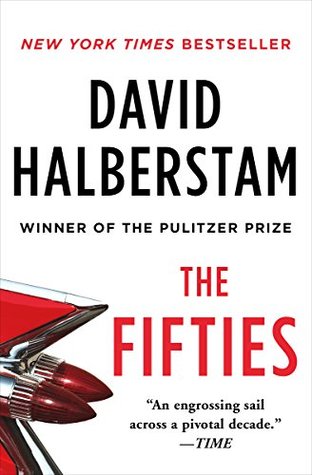More on this book
Community
Kindle Notes & Highlights
In the years following the traumatic experiences of the Depression and World War II, the American Dream was to exercise personal freedom not in social and political terms, but rather in economic ones.
He was the last American President who had not been to college and yet he was quite possibly the best-read President of modern times.
“Three things ruin a man,” he liked to say: “power, money, and women. I never wanted power, I never had any money, and the only woman in my life is up at the house right now.”
As development of the hydrogen bomb proceeded, someone asked Albert Einstein, whose original equations had paved the way to the atomic age, how the Third World War would be fought. Einstein answered glumly that he had no idea what kind of weapons would be used in the Third World War, but he could assure the questioner that the war after that would be fought with stones.
McCarthy’s carnival-like four-year spree of accusations, charges, and threats touched something deep in the American body politic, something that lasted long after his own recklessness, carelessness, and boozing ended his career in shame. McCarthyism crystallized and politicized the anxieties of a nation living in a dangerous new era. He took people who were at the worst guilty of political naïveté and accused them of treason. He set out to do the unthinkable, and it turned out to be surprisingly thinkable.
The real scandal in all this was the behavior of the members of the Washington press corps, who, more often than not, knew better. They were delighted to be a part of his traveling road show, chronicling each charge and then moving on to the next town, instead of bothering to stay behind to follow up. They had little interest in reporting how careless he was or how little it all meant to him. It was news and he was news; that was all that mattered. “McCarthy was a dream story,” said Willard Edwards, of the Chicago Tribune. “I wasn’t off page one for four years.” Edwards, with his paper’s
...more
The job of the union, he insisted, could be reduced to a simple idea: the protection of the slowest and least efficient worker.
Administration officials had few moral qualms either about their role or about deceiving the American press and people. They saw themselves in an apocalyptic struggle with Communism in which normal rules of fair play did not apply. The
The Brown v. Board of Education decision not only legally ended segregation, it deprived segregationist practices of their moral legitimacy as well. It was therefore perhaps the single most important moment in the decade, the moment that separated the old order from the new and helped create the tumultuous era just arriving. It instantaneously broadened the concept of freedom, and by and large it placed the Court on a path that tilted it to establish rights to outsiders; it granted them not only greater rights and freedoms but moral legitimacy, which they had previously lacked. This had a
...more
One reason that Americans as a people became nostalgic about the fifties more than twenty-five years later was not so much that life was better in the fifties (though in some ways it was), but because at the time it had been portrayed so idyllically on television.


